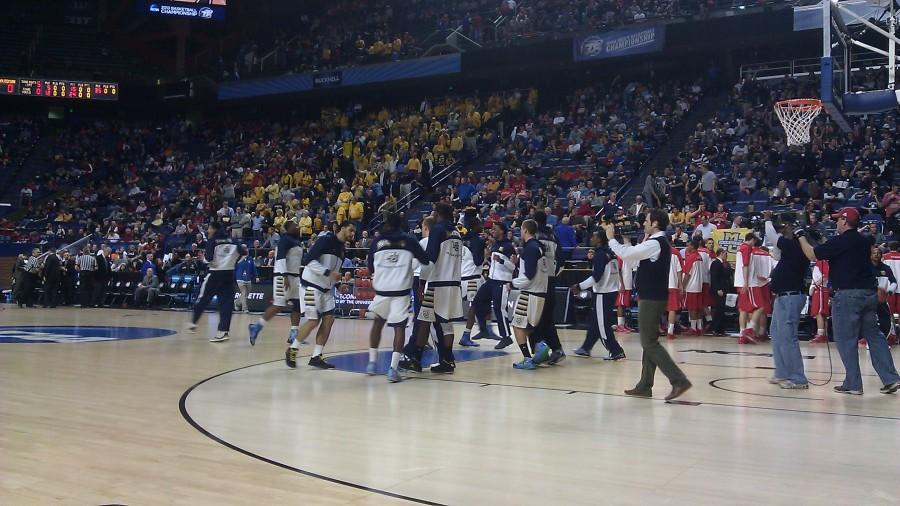The new year brought an onset of new tax laws and Marquette athletics is concerned about a repealed deduction. Marquette season ticket holders can no longer take a deduction on seating priority contributions, which go toward student-athlete scholarships.
Previously, Marquette fans could purchase season tickets, donate to the Blue and Gold Fund to get better seats and then get 80 percent of that donation deducted from their taxes, as it was considered a charitable donation. The right to purchase tickets is no longer a charitable contribution, which means future donors will not receive the tax deduction.
The deduction was repealed as part of the tax reform that President Donald Trump signed into law December 22. The reform became effective Jan. 1.
The athletics department sent an email to Blue and Gold Fund season ticket members prior to the bill being signed. The email encouraged members to make any planned donations before the new year, and also explained the impact the donations have on student-athletes.
“Contributions for seating priority have been an important part of our fundraising effort for student-athlete scholarships for many years and will be an integral part of season tickets moving forward,” the email said.
University spokesman, Chris Jenkins said he cannot predict the impact the repealed deduction will have.
“We simply do not know for how many of our valued season ticket holders the deduction has been important, or to what extent,” Jenkins said. “Marquette Athletics has a proud and loyal fan base, and we’re hopeful their generosity will only increase for decades to come.”
Jenkins said the university has no position on the tax reform, but university spokespeople were communicating with members of Congress on various provisions of the tax legislation, including the season ticket deduction.
Duane Swank, professor of political science, said the tax bill and this repealed deduction in particular could have indirect effects on college athletics by discouraging charitable giving.
“The negative impact of the tax reform on charitable giving, by creating incentives to take the standard deduction and not itemize deductions that include charitable contributions, may still have an adverse effect on education resources,” Swank wrote in an email.
Paul Nolette, assistant professor of political science, said this is not the first time the season ticket deduction has been put on the chopping block.
“This particular deduction has been targeted in the past as one that is sort of a boondoggle, or a good example of a piece of the tax code that is overly complex and gives a tax benefit largely to people who are wealthier,” Nolette said.
Nolette said the deduction was most likely repealed to afford for other tax cuts in the bill.
“I think Republicans ultimately said, ‘We need to get rid of deductions in order to pay for the other cuts in the bill like the corporate tax cuts,’” Nolette said. “As the bill made its way through the legislative process, there was initially talk of eliminating the mortgage deduction and these other really big ones that are popular. Those deductions didn’t go anywhere, so the smaller deductions had to be targeted, which is what happened here.”








